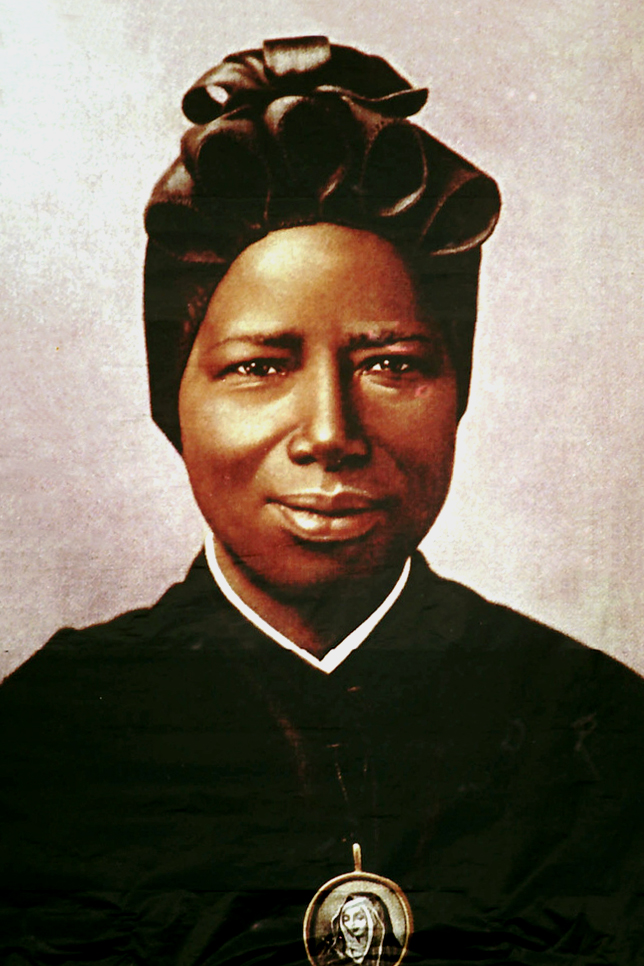
By Caroline Smith
On the Feast of St Josephine Bakhita, Bishops and religious leaders from across Australia have this week supported calls from Pope Francis to end the injustice of human trafficking against all people, in particular children.
St Bakhita is the Patron Saint for victims of slavery. The United Nations estimates that one in every three victims of human trafficking is a child, and it is estimated that 30 million children have lost their childhood through sexual exploitation over the past 30 years.
Recently appointed Western Australian Co-Ordinator of Australian Catholic Religious Against Trafficking of Humans (ACRATH) Kathy Fagan said it is a sourge affecting many adults and children which exists in many different forms, often closer to home than many people think.
“The community is not very well informed about this issue, and people are often surprised when our Perth ACRATH group does a presentation on ‘Human Trafficking in Australia’,” she said.
“But we are doing as much as we can to raise awareness through talks at schools and universities and in community groups in Perth and Geraldton. We also do presentations in partnership with the Red Cross, Anti-Slavery Australia, Catholic Mission, the CEO and Youth with a Mission.”
Human trafficking can take the form of sexual exploitation, domestic servitude, forced marriage and the exploitation of overseas labour – and Ms Fagan said the last two were of particular focus for ACRATH at the moment.
She added that by working with other non-government organisations, the agency was able to support victims of human trafficking in Australia and overseas.
“Locally we work with other NGO’s in the WA Freedom Network and within the Interagency Network on Modern Day Slavery and Human Trafficking to raise awareness and to ensure the rights of trafficked people are met,” Ms Fagan said.
“Also we in WA co-ordinate an Asia-Pacific network to support people who have been trafficked and need on the ground assistance to be repatriated or so their children can be supported.
“Recently we assisted someone who had been trafficked from one Asian country to another Asian country and this person needed help to be able to face the problems associated with her having been trafficked.
“We found an Australian who offered financial assistance for her to begin a new life after the trauma she had endured.”
Raising awareness of human trafficking is also the purpose of Bakhita Day – or the feast day of St Josephine Bakhita, celebrated on Wednesday 8 February, with Australian bishops joining Pope Francis in their condemnation of this crime.
The Holy Father has designated the feast to be a World Day of Prayer, to raise awareness of the issue, with a particular focus on child trafficking, which is estimated to affect millions of children every year, with the United Nations estimating that one third of human trafficking victims are children.
Chairman of the Bishops Commission for Pastoral Life Bishop Terry Brady said the day should provide a focal point for efforts to combat human trafficking.
“St Josephine Bakhita’s feast day is an opportunity to raise awareness about human trafficking involving children,” he said.
“Pope Francis has called us to make a difference. Sometimes our steps are small, but together we can achieve a great deal especially when we work with others to stop human trafficking.”
In response to this crime, Australian bishops and religious leaders have called for a fourfold commitment to prevention, victim protection, the legal prosecution of perpetrators, and partnerships for change.
St Josephine Bakhita is the patron saint of victims of slavery, reflecting her own experience of enslavement as a child in southern Sudan.
Sold in 1883 to the Italian Consul to Khartoum Callisto Legnani, she was brought to Italy and given to Legnani’s friend Augusto Michieli to work as a babysitter for his daughter, who was being educated by Canossian Sisters in Venice.
Inspired by this, she became attracted to the Catholic faith, and when the Michiali family decided to go to Africa, she refused, and was supported in this by the Patriarch of Venice and the Sisters.
Finally freed in 1889, she was baptised into the Catholic Church a year later, and in 1893 entered the Institute of St Magdalene of Canossia, becoming a religious sister until her death in 1947.